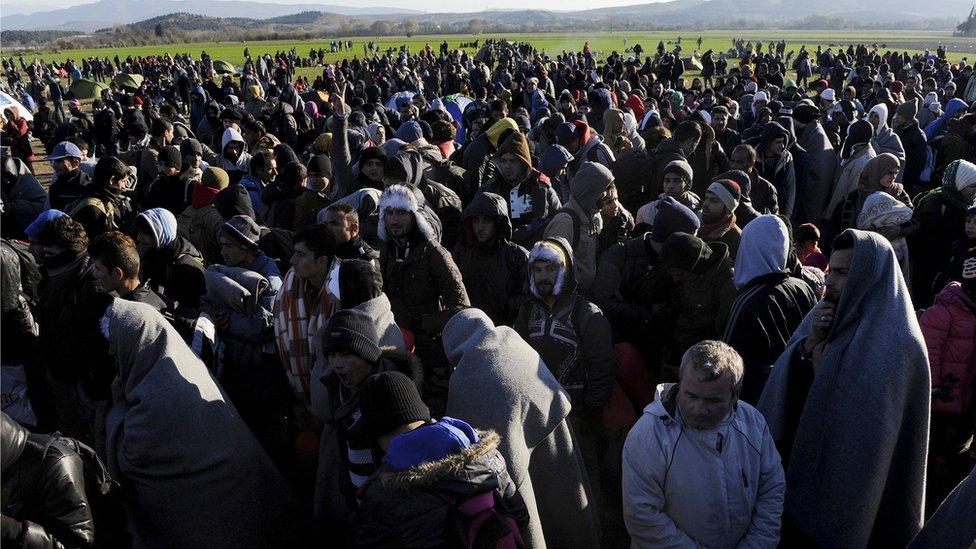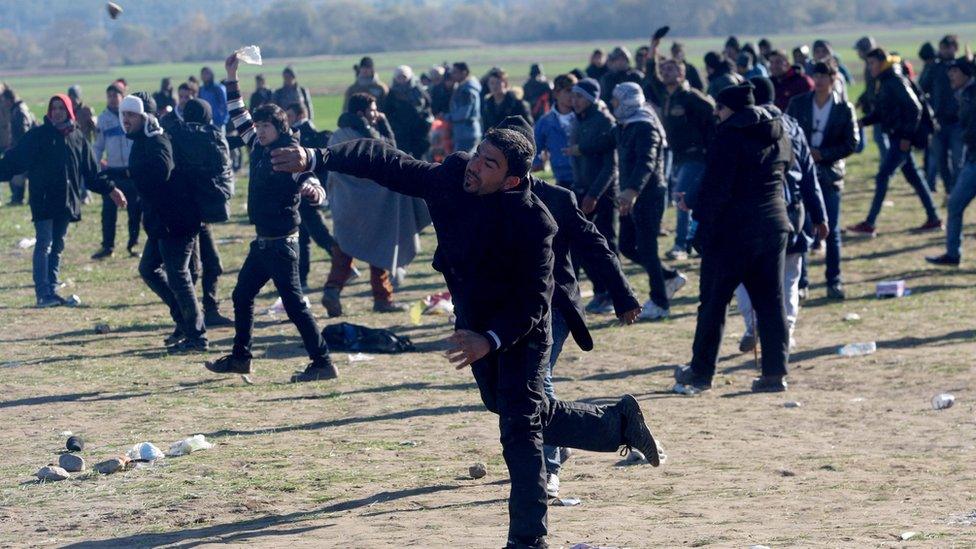Migrant crisis: Greece seeks EU help amid border chaos
- Published
Chris Morris reports from the Greek-Macedonian border where thousands of migrants remain stranded
Greece has asked for EU help in managing its borders, as thousands of migrants remain stuck on its northern frontier with Macedonia.
Macedonia has only been letting in Syrians, Iraqis and Afghans who are fleeing conflict, sparking angry demonstrations from other groups.
The border reopened on Friday morning after a protest by migrants of other nationalities closed it for two days.
There is a substantial riot police presence on both sides of the border.
More than a thousand migrants - notably from Iran, Pakistan, Somalia and Morocco - are still not being allowed to proceed.
Separately, a young Moroccan migrant was electrocuted amid clashes near the Greek village of Idomeni. The man died after climbing onto the roof of a train carriage and touching a high-voltage overhead cable, local police said.
Some 5,000 people are now stuck at the border, including 43 busloads of Syrians, Iraqis and Afghans who arrived overnight on Wednesday.
The thousands of people stranded near Idomeni are sleeping in charity-provided shelters, tents or in the fields.

Thousands of people remain stranded at the Greek-Macedonian border

Clashes have erupted between groups allowed to cross the border and those left behind
EU interior ministers will meet on Friday to discuss Greece's ability to control the flow of migrants crossing through the country on the way to northern Europe.
Athens' acceptance of help from EU border agency Frontex and European aid to care for migrants was welcomed by the bloc ahead of the meeting.
Reports had suggested that some EU states had asked for Greece to be suspended from the Schengen passport-free zone for not doing enough to secure its external borders and allegedly rejecting EU help.
Greece denies that it ever spurned EU assistance, but the government, aware of domestic ramifications, has sought to make clear that Frontex will only assist with migrant registration, and not conduct joint border patrols.
Almost 600,000 migrants have arrived in Greece this year, mostly by boat from nearby Turkey. The Greek government says it has spent some €1bn (£722,000) on managing the crisis.
Many migrants try to travel onwards to northern Europe through the Balkans, where several countries have put up fences and reinstated border controls.